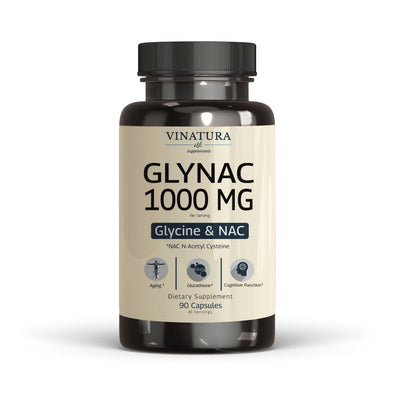
Berberine vs Phentermine: Which Is Better For Weight Loss?
When it comes to weight loss, you’ve likely heard of Berberine and Phentermine. Phentermine is a prescription medication often used to assist with appetite control by influencing the central nervous system.
In contrast, Berberine is a natural supplement that may aid weight loss by improving insulin sensitivity and lowering blood glucose levels. Each option suits different needs, and this article will help you explore the features of both and how to use them.
Before exploring further, please read the disclaimer located at the end of this webpage.
Key Takeaways
- Phentermine is a prescription medication that suppresses appetite by stimulating the nervous system.
- Berberine is a natural supplement that aids weight loss by improving insulin sensitivity and lowering blood glucose levels.
- not combine Berberine and Phentermine without your doctor's approval.
About Berberine
What Is Berberine?

Berberine is a natural alkaloid compound derived from plants like Goldenseal, and it has been used for centuries in Ayurvedic and traditional Chinese medicine. It has been used in traditional medicine, and modern studies suggest that Berberine may have various biological activities that contribute to overall wellness and metabolic function [1].
Berberine Benefits
Berberine may be associated with several potential wellness benefits. Here are some notable aspects:
- Brain Protection: Berberine may play a role in cognitive function by influencing neurotransmitter activity [2].
- Cardiovascular Health: It may be associated with maintaining healthy cholesterol levels already within normal range and supporting overall cardiovascular function [2].
- Hormone Balance: Berberine may influence insulin sensitivity and help maintain hormonal balance, particularly in individuals managing weight [2].
- Digestive Support: It may be associated with supporting digestive health and maintaining liver function [2]. Berberine can balance gut bacteria, improve digestive health, and protect the digestive system from infections [3].
- Antioxidant and Antimicrobial: Berberine has antioxidant and good bacteria effects, helping to combat tenacious infections [2].
- Weight Loss: Berberine may be linked to weight management by supporting metabolic processes related to glucose and insulin [3].
About Phentermine
What Is Phentermine?

Phentermine is a prescription medication that may assist in weight management. It belongs to a class of sympathomimetic amines, stimulating the nervous system to reduce appetite. Phentermine works by increasing the release of norepinephrine, a neurotransmitter that helps reduce food intake and boosts energy expenditure [4].
Typically prescribed for obese individuals needing to lose weight quickly over a short period, Phentermine is often combined with a healthy diet and lifestyle for the best results.
Phentermine Benefits
Phentermine is a prescription medication that helps reduce appetite, thus aiding the weight loss process. Here are some key benefits of Phentermine [5]:
- Reduced Hunger: Phentermine helps decrease appetite, making users feel less hungry or fuller for longer, thereby reducing food intake.
- Weight Loss Support: When combined with a healthy diet and exercise, Phentermine may be used alongside a balanced diet and exercise to support weight management under medical supervision.
- Long-term Use Possible When Combined: Phentermine can be used for up to 12 weeks, but some doctors may prescribe it longer when necessary, especially when combined with topiramate (in the drug Qsymia), which has been approved for long-term use.
- Low Abuse Potential: Although Phentermine is classified as a drug with potential for abuse, its abuse rate appears very low compared to many other medications.
- Improved Overall Health: For those unable to lose sufficient weight through diet and exercise alone, Phentermine can help improve overall health by promoting weight loss.
Despite its many benefits, Phentermine is not suitable for those with cardiovascular issues, hyperthyroidism, or glaucoma, and pregnant or breastfeeding women should not use it.
Berberine vs Phentermine: Which Is Better For Weight Loss?

There is no definitive answer to the question of which is better for weight loss between Berberine and Phentermine.
Each has its advantages and mechanisms. While Berberine is a natural compound that activates the AMPK enzyme, improves insulin sensitivity, reduces fat, and balances appetite hormones, Phentermine is a prescription medication that stimulates the central nervous system to suppress appetite and increase energy.
In terms of effectiveness, if you are looking for a sustainable weight loss method, Berberine may be the better choice. Many people have seen positive results when using Berberine, especially those with insulin issues.
On the other hand, Phentermine often leads to quicker weight loss, with the potential to lose 5-10% of body weight in just 12 weeks, but it is typically used only for a short period.
Side effects are also an essential factor. Berberine is generally safe with few side effects, while Phentermine may lead to some effects, such as increased heart rate, which a healthcare provider should monitor.
Thus, Berberine is a safe, natural option for effective weight loss, though it requires time, while Phentermine is a prescription medication for rapid weight loss but may cause side effects and requires medical supervision. Therefore, the appropriate choice depends on individual health goals and conditions.
Berberine vs Phentermine: Comparison Table
To make an informed choice between Berberine and Phentermine, you need to understand them well first. The following table summarizes useful information about these two options for comparison.
|
Criteria |
Berberine |
Phentermine |
|
Mechanism of Action |
- Natural compound from plants |
- Prescription drug, stimulates noradrenergic receptors |
|
- Improves insulin sensitivity |
- Reduces appetite and boosts energy |
|
|
Side Effects |
- Safe, with few side effects |
- Rapid heartbeat, insomnia, constipation |
|
- May cause diarrhea or indigestion |
- While not considered highly addictive, it has potential for abuse and dependence |
|
|
Use and Duration |
- Dietary supplement, long-term use |
- Short-term prescription (up to 12 weeks) |
|
- Suitable for natural solutions |
- Combined with diet and exercise |
|
|
Effectiveness |
- Effective weight loss but requires time |
- Rapid weight loss in a short period |
|
Conclusion |
- Good option for natural solutions |
- Suitable for quick methods, requires doctor supervision |
Should I Take Phentermine and Berberine Together?

No scientific studies have reviewed the safety of combining Phentermine with Berberine. Phentermine is a prescription medication used to assist with weight loss, but it can cause various side effects such as increased heart rate, insomnia, and dry mouth.
Combining it with Berberine, a dietary supplement, could lead to unwanted interactions. Therefore, if you want to use both together, you must obtain approval from a doctor or healthcare professional.
Dosage And Recommendations
The recommended dosage of Berberine is about 500 - 1500 mg per day, divided into 2 - 3 doses to allow the body to adapt effectively [3].
For adults who are overweight, the typical dosage of Phentermine is 8 mg, taken three times a day before meals or 37.5 mg, taken once a day before breakfast. Additionally, there are 15 mg and 30 mg tablets that can be taken about 2 hours after breakfast [6].
Safety Considerations And Side Effects
Some individuals may experience gastrointestinal effects when using Berberine, such as bloating or digestive discomfort. If you are taking medication or have existing health conditions, consult your doctor before starting Berberine to avoid unwanted interactions.
This is especially important if you are pregnant or breastfeeding, as it may affect certain medications and cause low blood glucose levels.
Phentermine may cause side effects like increased heart rate, insomnia, dry mouth, and stress. It’s not suitable for those with heart disease or who are pregnant/breastfeeding. When using Phentermine, avoid taking it in the evening to manage insomnia.
Conclusion
Choosing between Berberine and Phentermine depends on your weight loss goals and current health status. If you prefer a natural option for weight management, Berberine may be worth considering.
However, if you need to lose weight quickly and under medical supervision, Phentermine could be an effective solution. Do not combine these two products without a doctor's guidance.
References
- [1] Berberine: a potential phytochemical with multispectrum therapeutic activities. Expert Opinion on Investigational Drugs. Published online 2024. doi:https://doi.org/10.1517//13543784.2010.517745
- [2] Kaginelli S, Basalingappa K. BERBERINE and ITS PHARMACOLOGY POTENTIAL: A REVIEW. Accessed October 19, 2024. https://www.researchgate.net/profile/Kanthesh-Basalingappa/publication/346439412_BERBERINE_AND_ITS_PHARMACOLOGY_POTENTIAL_A_REVIEW/links/5fc1eb48a6fdcc6cc67740fa/BERBERINE-AND-ITS-PHARMACOLOGY-POTENTIAL-A-REVIEW.pdf
- [3] Clinic C. What To Know About Berberine: Benefits, Uses and Side Effects. Cleveland Clinic. Published June 19, 2023. Accessed October 19, 2024. https://health.clevelandclinic.org/berberine-for-insulin-resistance-weight-loss
- [4] An H, Sohn H, Chung S. Phentermine, Sibutramine and Affective Disorders. Clinical Psychopharmacology and Neuroscience. 2013;11(1):7-12. doi:https://doi.org/10.9758/cpn.2013.11.1.7
- [5] Phentermine weight-loss medicine: Know the side effects. Mayo Clinic. Published 2022. Accessed October 19, 2024. https://www.mayoclinic.org/healthy-lifestyle/weight-loss/expert-answers/phentermine/faq-20057940
- [6] https://www.facebook.com/Drugscom. Phentermine Dosage Guide + Max Dose, Adjustments. Drugs.com. Published 2023. Accessed October 19, 2024. https://www.drugs.com/dosage/phentermine.html
Author

Product Disclaimer
Including an ingredient or study does not evaluate, endorse, or recommend any Vinatura product or any third-party product. Some ingredients discussed may not be used in any Vinatura product.
The content of the articles has not been evaluated by the Food and Drug Administration (FDA) and is not intended to promote or endorse any specific product. Any products sold on this website are not intended to diagnose, treat, cure, or prevent any disease.
Opinions and Endorsements
Any claims, statements, or opinions expressed in the articles are those of the author(s) and do not necessarily reflect the views or opinions of the manufacturers of the dietary supplement products. The products sold on this website are separate from the content of the articles and are not directly endorsed or associated with the information presented here.
Liability Disclaimer
The author(s) of the articles, website, and manufacturers of the dietary supplement products do not assume any liability for any potential consequences arising from the use of the information provided in the articles. Ingredient effects, dosages, and safety vary by individual, formulation, and context; some ingredients interact with medications or may be unsuitable during pregnancy or lactation. It is recommended that individuals consult with a qualified healthcare professional before making any dietary or lifestyle changes, including the use of dietary supplements.
Product Usage
Please refer to the product labels and packaging for specific usage instructions and guidelines for the dietary supplement products sold on this website.
Customer Support
For any concerns or questions regarding the dietary supplement products, please contact our customer support team, who will be more than happy to assist you.





Leave a Comment
Be the first to comment.
What do you think?